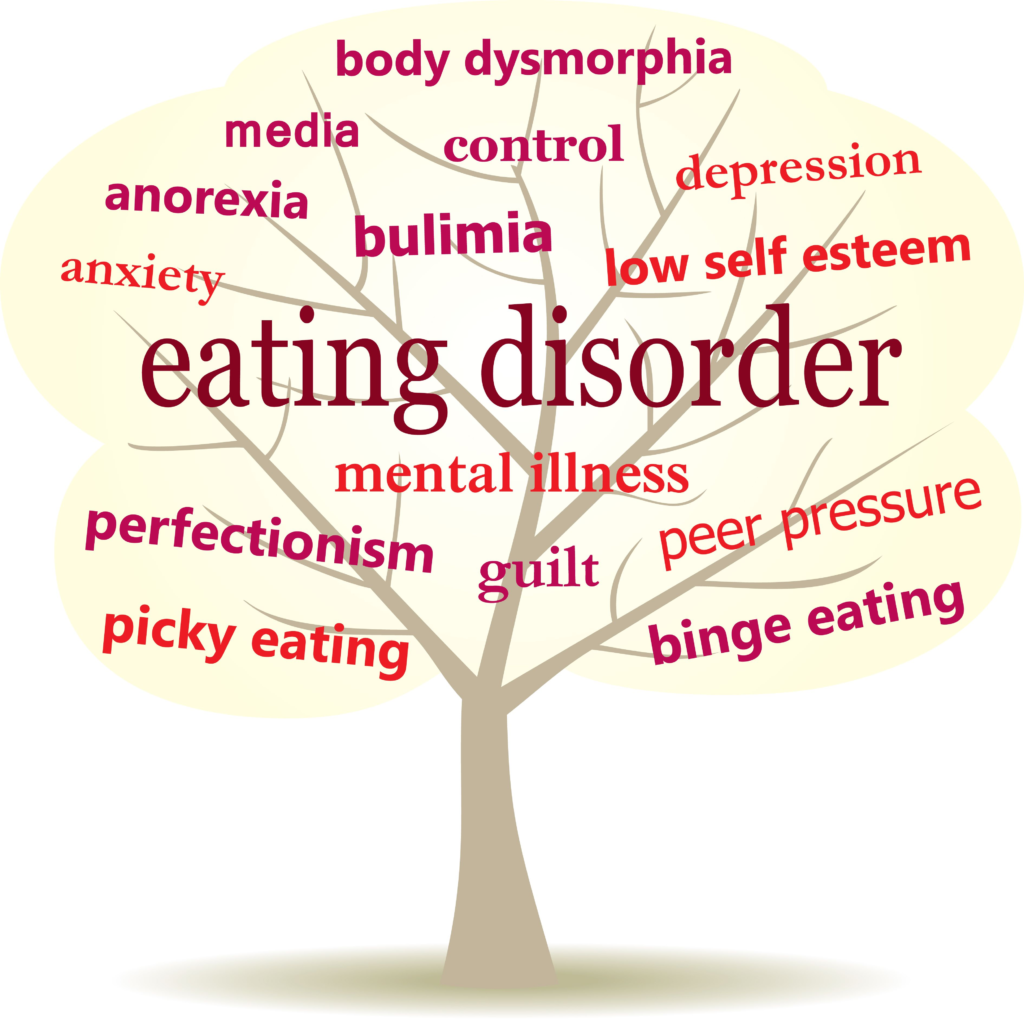Eating Disorders have the highest mortality rate of any other psychiatric illness (aside from the recent increase of opioid related deaths). Eating Disorders are not a choice or a “phase” and typically do not get better without the help of an eating disorder professional, as well as other multidisciplinary team members (dietitians, prescribers, medical doctors). If you don’t “feel ready”, that’s ok. We will meet you where you are, and start with general education or related goals that feel like a more comfortable starting place.
Bardwell Behavioral is pleased to provide the necessary specialized treatment for eating disorders including but not limited to:
- Anorexia Nervosa – restricting intake with the goal of changing one’s body size, shape or weight and/or preventing weight gain resulting in a significantly low weight
- Bulimia Nervosa – binge eating and compensating for binge eating by fasting, excessive exercise, purging via self-induced vomiting or use of laxatives/diuretics
- Binge Eating Disorder – binge eating without compensation
- Avoidant Restrictive Food Intake Disorder – extreme picky eating due to lack of interest, sensory issues or fear of medical consequences – typically occurs without body image disturbances
- Atypical Anorexia – restricting intake with the goal of changing one’s body size, shape or weight and/or preventing weight gain that has not resulted in the person being a significantly low weight
- Purging Disorder – compensating behaviors are used for any intake that would not be considered a binge eating episode
- Night Eating Syndrome – consuming the bulk of daily intake following the evening meal – often resulting in sleep disturbances
- Emotional Eating – eating in the absence of hunger in order to cope with distressing emotions
- Compulsive Overeating – responding to the presence of food with intake vs. physical hunger without thought
- Orthorexia – inflexible eating outside of strict “pure” or “clean food” eating resulting in skipped snacks and/or meals when certain foods are not available
- Disordered Eating – eating that impacts the feasibility, ease and enjoyment of meals and social experiences, and may or may not result in decreased functioning.

